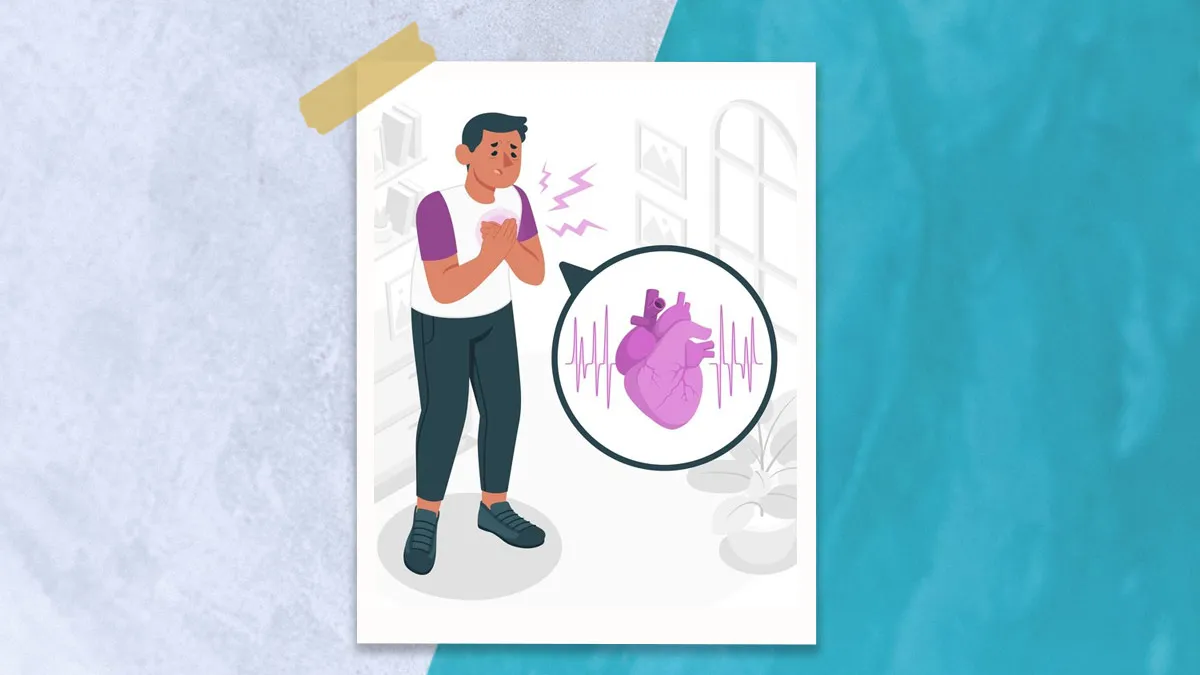
Almost a week back, the world woke up to a tragic death, that of Rohan Mirchandani, the CEO of Epigamia. The popular Greek yogurt brand's co-founder died at 42 due to cardiac arrest. And then Monday, December 23, ex-Bengal Ranji Trophy player Suvojit Banerjee passed away for the same reason. He was 39. Now, both these incidents have sparked concerns about the younger Indians, who do have a greater risk of developing heart disease compared to other populations. Moreover, it's winter when heart diseases apparently spike. Dr. Anjan Siotia, director of cardiology, at BM Birla Heart Hospital, shares whether there's a connection between winter and heart health and what to do.
According to Dr. Siotia, studies over the years have established a link between a significant rise in heart disease cases and winter, with many findings "reporting a 53% increase in heart attack risks compared to other seasons."
He says the cold weather can indeed be a major trigger for heart attacks "primarily due to the physiological changes that occur in response to low temperatures."
Explaining, Dr. Siotia points out, "Exposure to cold causes blood vessels to constrict, increasing blood pressure and reducing the oxygen supply to the heart muscles. To compensate, the heart works harder, increasing the risk of cardiovascular events such as heart attacks."
When the temperature plunges further, "the heart may beat faster to generate heat, adding further stress to the cardiovascular system," he adds. This is why conditions like angina - chest pain due to reduced blood flow to the heart - are more common in winter and "can lead to severe complications like plaque rupture or heart attacks. Cold-induced arterial spasms, which further restrict blood flow, also contribute to the risk," he highlights.
To add to your woes, respiratory infections, which are prevalent in the cold season, can exacerbate the heart condition as they strain the cardiovascular system, says the doctor.
Don't Miss: Eating 5 Mushrooms Daily May Help Fight Heart Disease, Cancer, And Dementia, Study Says; Expert Weighs In
Cholesterol levels, which apparently worsen during winter, is another major reason behind cardiac arrest or heart disease. Attesting to this, Dr. Siotia says, "Cold weather has a significant impact on cholesterol levels, often leading to an increase in low-density lipoprotein (LDL), commonly referred to as bad cholesterol. This is primarily because the body’s metabolism slows down in winter, and blood vessels constrict, reducing blood flow and making it harder for the body to process cholesterol effectively."
Dr. Siotia says, "Studies show that during winter, individuals with pre-existing cholesterol problems or heart conditions are at a higher risk of heart attacks or strokes. Elderly individuals, smokers, and those with existing heart conditions are especially vulnerable." To prevent that situation, he suggests 5 preventive tips:
Eat seasonal superfoods such as leafy greens, root vegetables, citrus fruits, omega-3-rich foods like walnuts, flaxseeds, fatty fish, whole grains, lean proteins, and healthy fats such as nuts and seeds to combat inflammation and maintain optimal cholesterol levels. Avoid unhealthy options such as fried snacks, sugary drinks, excessive alcohol, and trans fats.
Regular exercise, even simple indoor workouts like yoga, stretching, resistance training, or light aerobics, can help maintain healthy cholesterol levels. Proper warm-up and cool-down routines are crucial to prevent strain on the heart and cardiovascular system.
Staying hydrated, even in winter, supports good blood circulation and cardiovascular function. However, avoid overconsumption of alcohol and sodas.
Dress warmly to minimize stress on the heart and avoid sudden exposure to extreme cold. Also, ensure consistent sleep patterns, and manage stress.
Regular health checkups, adherence to prescribed medications, and monitoring of blood pressure are critical. Also, maintain your lipid profile, especially those who are at higher risk.
"Recognizing early warning signs of a heart attack—such as chest pain, shortness of breath, excessive sweating, and fatigue—is critical for timely medical intervention. However, these proactive habits can help keep your heart healthy and minimize the risk of heart-related complications during the winter months," Dr. Siotia wraps up.
Don't Miss: What Is The 6-6-6 Walking Rule? Here Are Its 5 Benefits, As Per An Orthopedist
If you liked this story, please share it. For more such articles, stay tuned to HerZindagi.
Our aim is to provide accurate, safe and expert verified information through our articles and social media handles. The remedies, advice and tips mentioned here are for general information only. Please consult your expert before trying any kind of health, beauty, life hacks or astrology related tips. For any feedback or complaint, contact us at compliant_gro@jagrannewmedia.com.